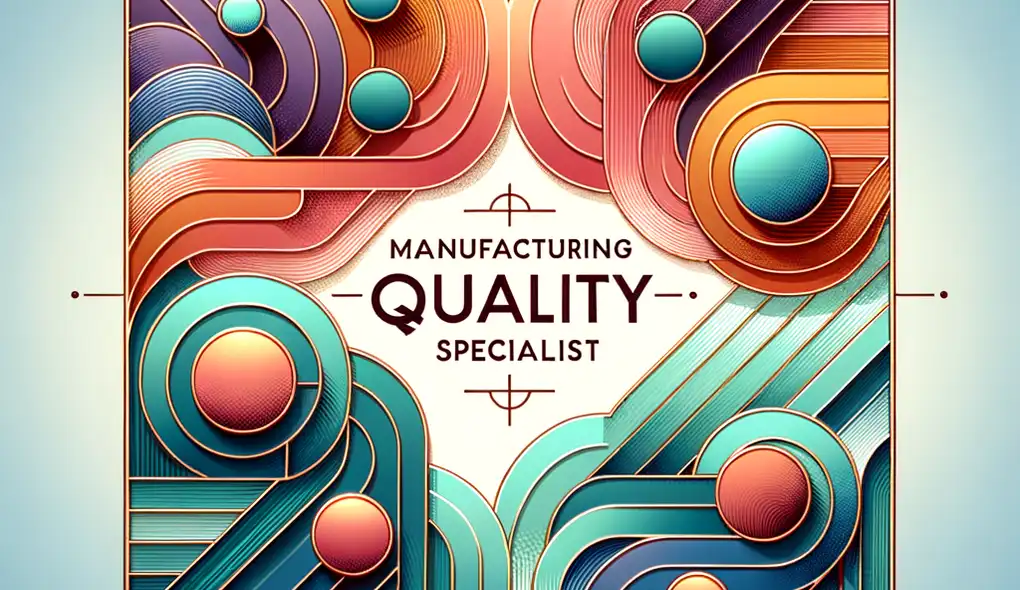How do you approach continuous improvement in a manufacturing quality context?
Manufacturing Quality Specialist Interview Questions
Sample answer to the question
In a manufacturing quality context, I approach continuous improvement by first analyzing the current processes and identifying areas for improvement. This involves closely monitoring the manufacturing processes to ensure that quality standards are being met. I also perform regular quality inspections and audits to identify any issues or defects. Once the areas for improvement are identified, I work closely with the production team to develop and implement solutions. This may involve making adjustments to the production process or introducing new quality control measures. I also analyze quality data to identify any trends or problem areas that need attention. Overall, my approach to continuous improvement in manufacturing quality is a combination of monitoring, analyzing, and collaborating with the team to implement effective solutions.
A more solid answer
In a manufacturing quality context, my approach to continuous improvement involves a systematic and data-driven process. Firstly, I conduct a comprehensive analysis of the current manufacturing processes to identify any areas for improvement. This includes closely monitoring the production processes and performing regular quality inspections. For example, I use statistical quality control techniques to analyze data and identify any trends or patterns that may indicate areas for improvement. Once the areas for improvement are identified, I work closely with the production team to develop and implement effective solutions. This requires strong communication and collaboration skills to ensure that the proposed changes are understood and accepted by the team. I also utilize problem-solving abilities to address any challenges that may arise during the implementation phase. For instance, I have successfully implemented lean manufacturing principles to streamline production processes and improve overall quality. Continuous improvement is a continuous cycle, and I believe in regularly evaluating the effectiveness of implemented solutions and making necessary adjustments based on the feedback received. This approach ensures that the manufacturing quality standards are constantly improving and aligning with industry best practices.
Why this is a more solid answer:
The solid answer provides more specific details about the candidate's approach to continuous improvement in a manufacturing quality context. It includes examples of using statistical quality control techniques and implementing lean manufacturing principles, demonstrating their analytical skills and problem-solving abilities. The answer also emphasizes the importance of communication and collaboration skills, which are required to work effectively with the production team. However, it could still be improved by providing more examples and highlighting the candidate's attention to detail.
An exceptional answer
In a manufacturing quality context, I approach continuous improvement by following a comprehensive and systematic approach that encompasses all aspects of the quality management process. Firstly, I conduct a thorough analysis of the manufacturing processes, paying close attention to every detail, to identify any areas that need improvement. This involves not only monitoring the production processes but also examining the raw materials, equipment, and personnel involved. For instance, I perform regular inspections to ensure that the equipment is properly maintained and calibrated, and that the operators are following the established procedures accurately. Additionally, I analyze quality data using advanced statistical techniques to identify trends and patterns that may indicate potential issues. This includes using techniques such as Pareto analysis, control charts, and root cause analysis to pinpoint the root causes of quality issues. Once the areas for improvement are identified, I collaborate with the production team to develop and implement effective solutions. This requires clear and concise communication to ensure that all team members understand the proposed changes and their roles in the implementation process. I also leverage my problem-solving abilities to address any challenges that may arise during the implementation phase, such as resistance to change or technical difficulties. Furthermore, I believe that continuous improvement is not a one-time effort but an ongoing process. Therefore, I regularly evaluate the effectiveness of the implemented solutions and seek feedback from the stakeholders to make necessary adjustments. This ensures that the manufacturing quality standards are constantly improving and aligning with industry best practices.
Why this is an exceptional answer:
The exceptional answer provides a highly detailed and comprehensive approach to continuous improvement in a manufacturing quality context. It showcases the candidate's attention to detail by highlighting the importance of examining all aspects of the quality management process, including raw materials, equipment, and personnel. The answer also demonstrates the candidate's analytical skills by mentioning the use of advanced statistical techniques and tools like Pareto analysis, control charts, and root cause analysis. The emphasis on clear and concise communication, as well as problem-solving abilities, further strengthens the answer. Additionally, the mention of regularly evaluating the effectiveness of implemented solutions and seeking feedback showcases a commitment to continuous improvement. Overall, the exceptional answer addresses all the evaluation areas mentioned in the job description and provides a comprehensive and detailed approach to continuous improvement in manufacturing quality.
How to prepare for this question
- Prepare specific examples from your past experience that demonstrate your attention to detail, analytical skills, communication skills, and problem-solving abilities in the context of continuous improvement in manufacturing quality.
- Research and familiarize yourself with different quality improvement methodologies and tools, such as Lean Six Sigma, statistical process control, and root cause analysis.
- Be prepared to discuss your experience in working with cross-functional teams and how you effectively communicate and collaborate with others to implement quality improvement initiatives.
- Review the job description and identify specific responsibilities and qualifications related to continuous improvement in manufacturing quality. Align your answers and examples with these requirements.
- Practice answering questions about continuous improvement in manufacturing quality in a clear and concise manner, highlighting your achievements and successes in this area.
What interviewers are evaluating
- Attention to detail
- Analytical skills
- Communication skills
- Problem-solving abilities
Related Interview Questions
More questions for Manufacturing Quality Specialist interviews